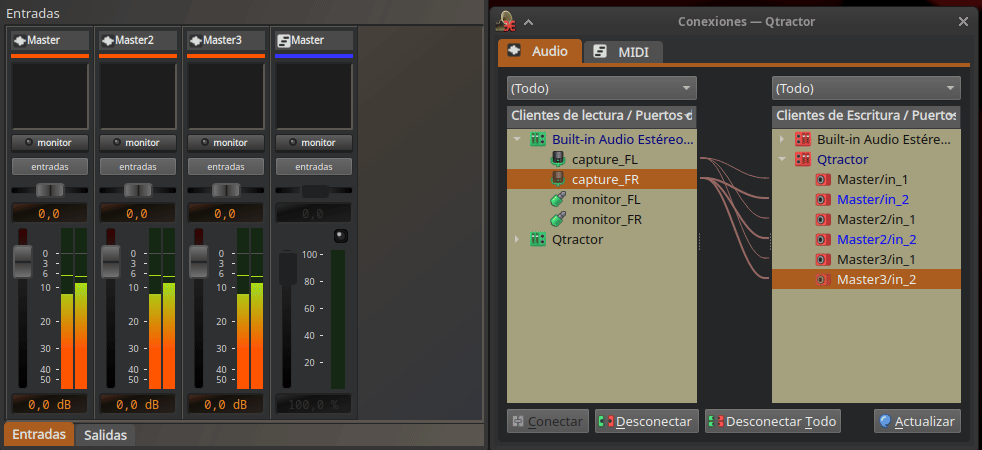Forums
If we connect the same audio source to multiple input buses, changing the gain on the first one will affect the subsequent ones. It's as if they were nested, related in order of creation, with the first created buses acting as parents of the subsequent ones.
It behaves like a serial signal, not a parallel one.
It does not occur if the audio sources are different.
While this isn't dysfunctional, it does exhibit abnormal behavior. It may be a symptom of a hidden bug.

File attachments

re. Abnormal behavior in input buses...
hi, good catch...
maybe a feature that has been there for ages, in fact since the very beginning almost 20 years ago.
it probably relates to the fact that when you connect the all input buses share the same signal buffer from the same source jack-audio port source if connected in parallel, so the bug-feature is thus a shared one between jack/pipewire and qtractor :)
of course it may have a workaround, implying a simple code change that will copy the source into every and each input bus buffer, adding some processing overhead directly proportional to the number of inputs buses in place.
so the question is, is it worth it?
thanks
Just an intuition
What I'm about to say next probably doesn't make sense, but...
What if the "zero copy" problem lies behind that shared buffer optimization?
Whether it's worth checking or not is not my decision :)
re. Just an intuition...
it ain't an optimization, rather about the same physical buffer that's being read and acted upon (ie. gain+panning) by qtractor processing itself...
nothing to do with the "zero-copy" optimization, where an output port buffer is made physically the same as an input buffer saving a copy operation in the jack/pipewire graph, not an optimization that qtractor or any jack-client can circumvent per se.
cheers
Add new comment